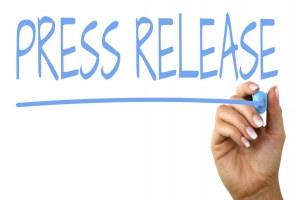The Power of Press Releases
That heading probably equates to a spoiler, but let’s be real … you probably clicked through to read this because your travel content strategy is a little lacking and the subject caught your interest. Well, it should.
Press releases have a unique ability to put your services in the spotlight.
The editorial, fact-based nature of a press release has built-in credibility. However, the biggest boost you will get from a press release won’t be from the release itself, but when people respond.
Press releases also provide the chance to really show your worth. It helps you introduce all kinds of things, not the least of which is your company’s executives and other team members. The human element of a press release creates points of relatability that lead to click-throughs. People quickly develop brand loyalty when they discover that your brand is the same kind of organized, honest, and trustworthy source of travel services you present in your content.
So, since I’ve already ostensibly answered the question, let me be more direct. You want to start sending press releases as soon as possible, and you want to send them often. Travel is an underserved industry in content marketing. This provides you with a unique opportunity to show off what your agency is doing and what it can do to make someone’s next trip memorable and stress-free.
Building a Press Release
There is much more comprehensive content about this out there, but here’s a quick thumbnail sketch of the most common elements of a press release:
• Headline
• Subheadline
• Dateline
• Body
• List of Contacts
The framework is simple, but building the structure takes skill. I have plenty of other blog content on press releases that I encourage you to check out if you need more information on press release writing. I further recommend seeking other sources on press release development before trying to push one through on your own.
In a best-case scenario, of course, you could always just hire us. We know travel industry press releases and can help you get them seen by the right demographics.
Rules of Engagement with Press Releases
Let’s get a little more into the “how” of developing and sending a press release. For starters, most press release aggregates have certain rules that must be followed before a press release will be accepted. Always research the platform you wish to use (PRWeb, for example) to determine the accepted format. There are several press release styles, and different sites have different requirements.
If you decide to work with a copywriting company like BeezContent (and you should), you might also want to develop a comprehensive brief that includes variations that accommodate all the sites you plan to use. Not sure how to go about this? There are plenty of resources that walk you through the process of sending press releases step by step.
Keep in mind that press releases are fact-based and that editorial commentary in a press release is discouraged. However, there is a loophole that you can use to add a little editorial content: quotes. Opinion and editorial commentary are acceptable in a press release as long as they take up a reasonable percentage of the overall content. If your press release is nothing but quotes with a little contact information, don’t expect the major news wires to give it the time of day.
When to Send
These are just a few ideas of reasons and occasions to consider sending a press release. I strongly encourage you to get creative and churn out a press release anytime anything noteworthy happens. Here are a few brainstorming ideas:
New Partnerships — Are you launching an affiliation with a hotel, property chain, resort, cruise line, etc.? This is the perfect time to send a press release and let potential clients know.
Price Drops on Popular Travel Packages — Who doesn’t like saving money on a dream vacation? If there are major changes in cost for packages involving popular destinations, a press release is a terrific way to announce them and provide details. Quotes work well here since you probably will already have a few from previous travelers using the same basic packages.
Introducing New Travel Packages — Tap into a travel market looking for a unique experience. Seed your press release with keywords that identify the destination and a few popular attractions to attract the most appropriate readers
Partner Events and Promotions — Make sure you are working collaboratively before sending press releases about affiliate and partner businesses. Chances are they’re developing their own press releases, as well. That said, namedropping trusted brands in a responsible way is a great way to build credibility and increase visibility with press releases.
Should You Send A Press Release? Absolutely!
Just a few final thoughts on this subject …
1. If you think something is worth a press release, send one. The more unique and interesting your announcement, the better.
2. Show the human side of your company. Send releases to introduce new agents and announce changes in key personnel.
3. Keep your press releases fact-rich and editorial-light. Don’t manufacture quotes to sneak in editorial content. Keep it real, and your messaging will come across as trustworthy. This is a particularly important goal when developing a press release.
4. Only send press releases that exhibit journalist-level quality in both the message and its presentation. In other words, make sure it’s well-written and free of spelling and grammatical errors.
Follow all the above advice, and your press release development strategy will be poised well for success.




